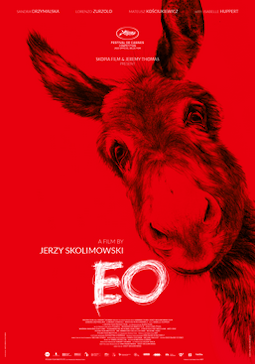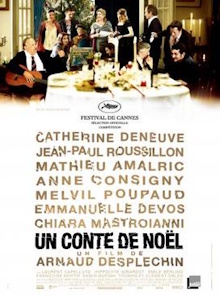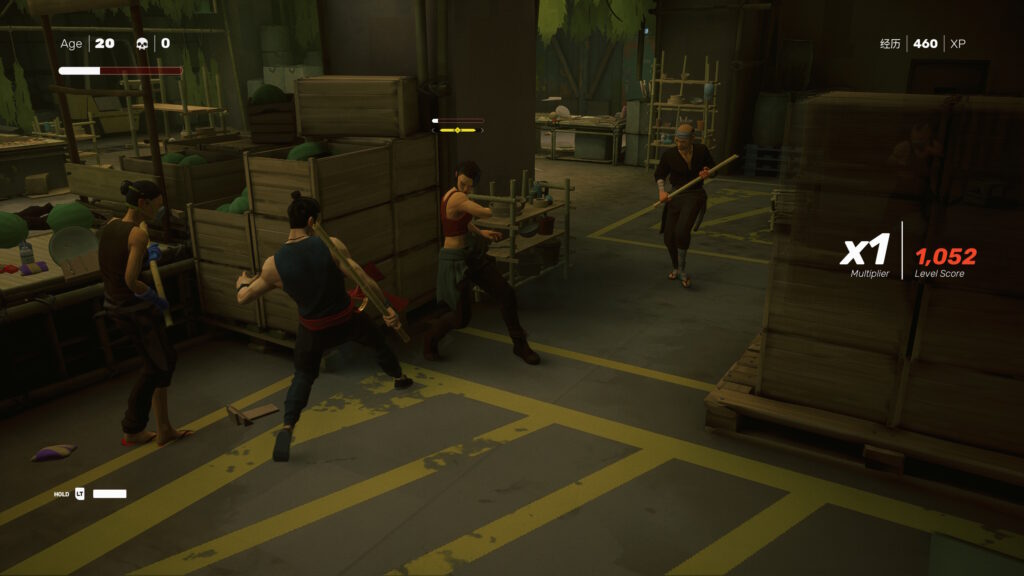This being the first television series made by Wong Kar-Wai, I thought I should at least check out a few episodes of it. I thought for sure that it would be released for foreign markets given Wong’s fame and so waited a while for it but it never did. In the event, I had to watch the original version with the Shanghainese language and Chinese subtitles, which is a real pain for me. The first two or three episodes were downright terrible. Too fast paced, too much posing and too little of substance. It gets better when it slows down by episode four and we can finally tell who’s who and what is going on. Even so I stopped at episode five because the full thirty episodes is way too much and there’s a lot that I don’t understand. Watching it properly would be a fascinating but rather taxing project.
Continue reading Blossoms ShanghaiThe Thief Collector (2022)
A valuable painting is stolen from a museum in 1985. Thirty years later it turns up in the estate of a deceased couple who are seemingly ordinary retired teachers. I don’t much care for the painting itself but the story that this documentary pieces together about the secret life of this couple is extraordinary. To supplement the interviews with the people who knew the couple and those familiar with the theft, actors reenact key scenes in a bold style that looks almost like something by Wes Anderson. I had doubts at first that it would hold my interest, but by the end I agree with the maker of this piece Allison Otto that someone should make a full feature film about this.
Continue reading The Thief Collector (2022)Science News (April 2025)
Not that much in the way of science news this month. Even the scientists are talking about economics and politics.
- The really big news this month has been in cosmology from analysis of three years’ worth of data from the Dark Energy Spectroscopic Instrument. The consensus is that, whatever it is, the effects of dark energy seems to be weakening over time, rather than being constant as previously believed. This finding is also supported by measurements of the cosmic microwave background. We don’t know what this means yet, only that it throws into question our current model of the universe.
- In more uplifting news, Japanese scientists have announced some success in giving paralyzed people the ability to walk again through stem cell therapy. The team had already succeeded earlier by transplanting neural stem cells into patients with spinal cord injuries, but back then they had used cells from fetuses. This time they repeated the feat with reprogrammed stem cells, which takes mature cells and induces them to become pluripotent. The success so far is only partial but the benefits to humanity of making this work consistently are obvious.
- Finally here’s a report about how DNA analysis of two naturally mummified remains found in the Sahara Desert a different and long lost lineage of humanity. Around 7,000 the area was not a desert and instead a lush, green savannah. These two ancients humans however came from a branch of humanity that split off much earlier than that, perhaps as much as 50,000 years and so were something like ancient fossils even while they were alive. It’s simply wild how much we don’t know about our past and now will probably never know.
The Movie Emperor (2023)
So much of the fun of this film is that Andy Lau plays a fictionalized version of himself here along with copious references to other Hong Kong superstars and the industry itself. The premise of a cinema superstar who deliberately does an artistic film to bait for acting awards is both on point and funny. The execution goes well at first but then it seems to lose track, turns into an uninteresting lesson about arrogance and in the end just kind of falls apart. I really wanted this to be good so it’s especially disappointing that it’s not.
Continue reading The Movie Emperor (2023)EO (2022)
As a film directly inspired by Au Hasard Balthazar, this one is similarly about the travails of a donkey. This time the setting is modern day Poland and while it has won a slew of accolades, I believe it is by far the lesser film. While the original was largely about the suffering of life in general, this one is focused on the harm that mankind inflicts on animals. Not only is that somewhat trite but it does so by throwing EO the donkey into a series of misadventures that are more or less random and improbable. It experiments with colors and stylistic effects but overall I’m not impressed.
Continue reading EO (2022)A Christmas Tale (2008)
A Christmas film comes with a certain set of expectations but don’t confuse the French with the Americans. With its large cast of characters and multiple storylines, it threatens to be a confusing mess and is more than content to leave things unexplained. Worse still is the application of French logic as applied to morality and family dynamics, excusing or even glorifying behaviors and actions that would be shocking in the US. Yet it’s undeniable a riveting watch, absurdly funny and makes for a wonderful example of just how different the French can be at times.
Continue reading A Christmas Tale (2008)Sifu
This is the kung fu fighting game that garnered a great deal of attention upon release but also scared many off due to its high difficulty and aging mechanic. I count myself among those who were intimidated and so stayed away. But then Epic gave it away for free so I was out of excuses. It took a great deal of focused practice but I did finally beat the game even if I had to cheese the hell out of the bosses so I’m here to report my verdict.
Continue reading Sifu




